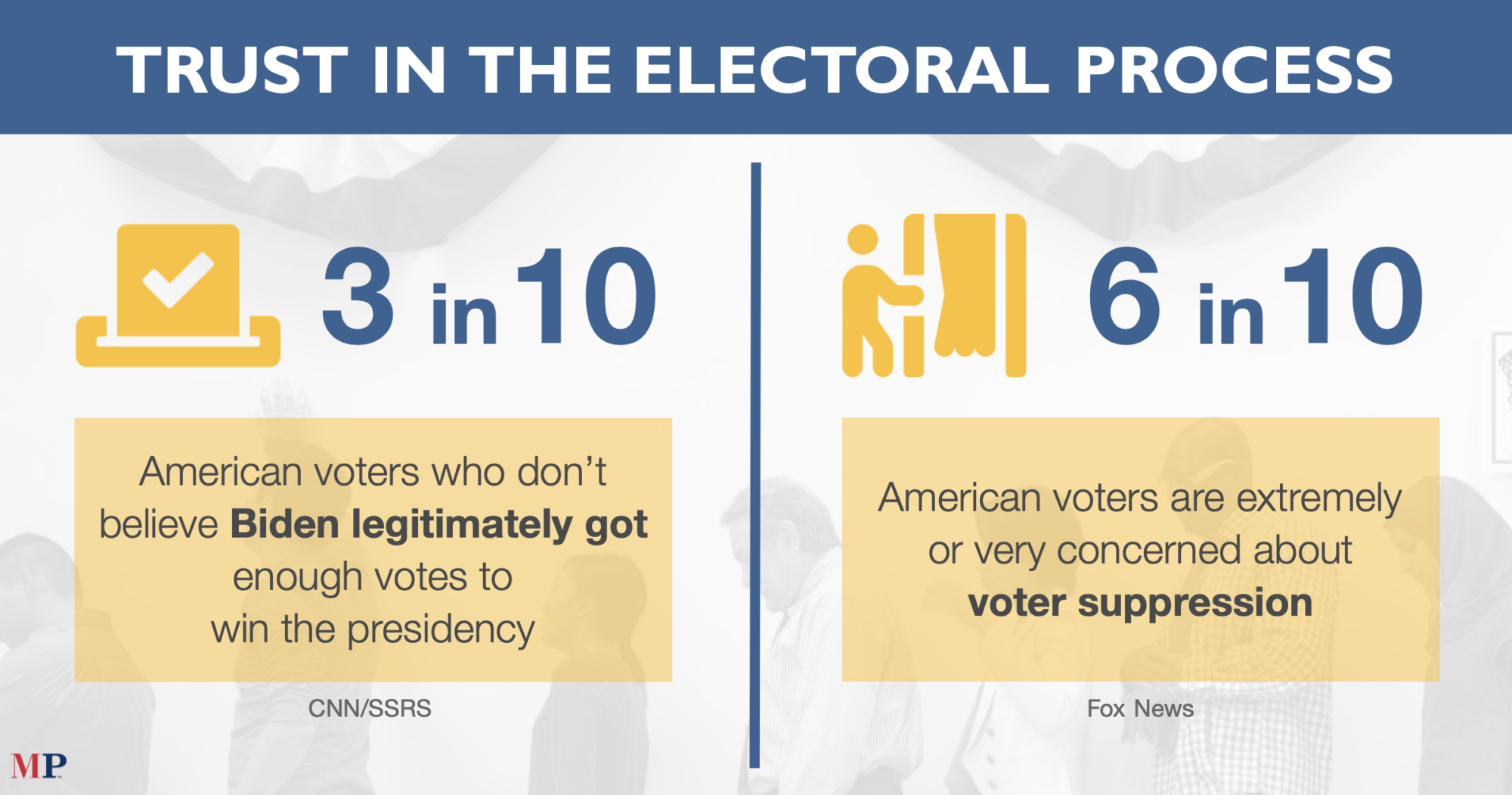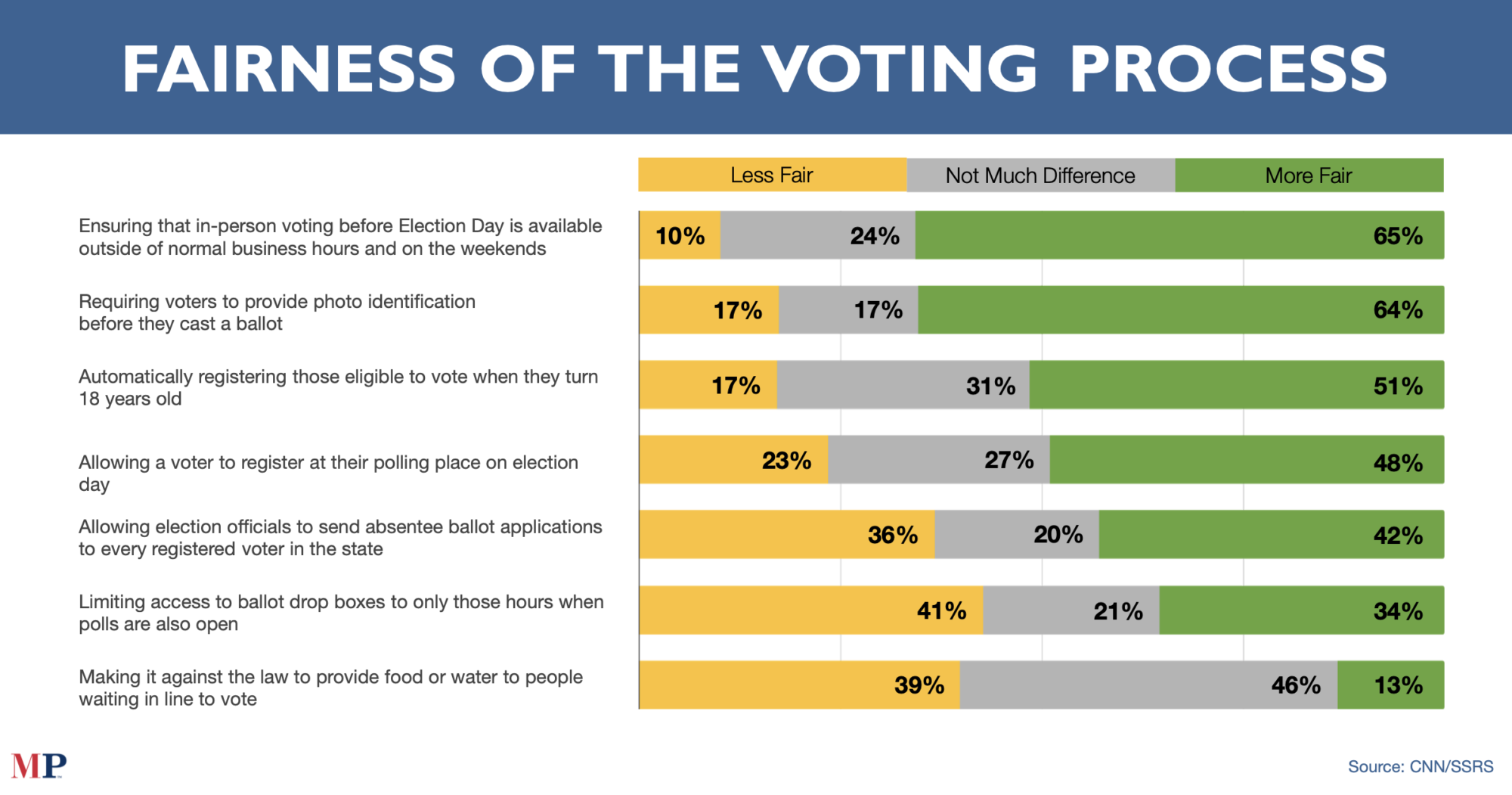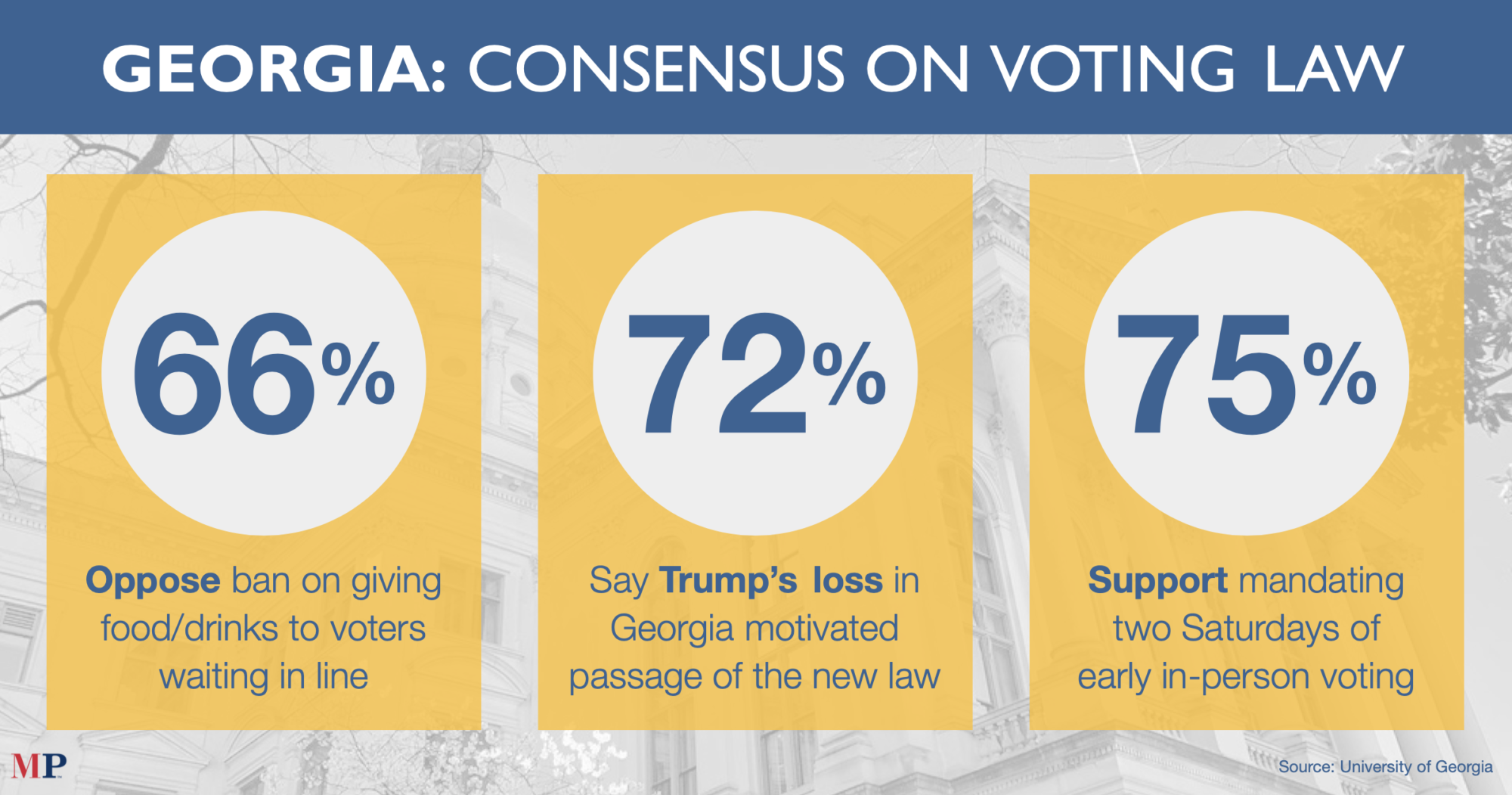As businesses and schools begin to reopen, a slow return to normalcy is finally underway, but the impacts of the last year may foster long-lasting changes for American democracy. New voting legislation has been making headlines in the election’s wake, and public opinion on voting rights and trust in elections could be a crucial piece of the country’s “new normal.”
The 2020 election marked a watershed in U.S. elections. More Americans voted by mail than ever before, as a global pandemic continued to spread and death tolls rose. A contentious presidential election ended with cries of voter fraud from the former president and other political leaders, culminating in the U.S. Capitol riots on January 6.
Now, new voting legislation has emerged in states and in Congress. A new Georgia law overhauled election protocols about absentee ballots, early voting, and distributing food and drinks to voters waiting in lines. Similar legislation in Texas aims to add penalties to the voting process and empower pollwatchers. In Congress, the For the People Act passed in the House in March and aims to expand voting rights, alter the process for redistricting, and make campaign finances more transparent, among other changes.
This legislation presents a classic dilemma: what comes first? Laws or public opinions? Distrust is real, but where’s it coming from? Months after the 2020 election, fallout from the “Big Lie” continues to shake American confidence in the voting process. Three in 10 Americans do not believe that Joe Biden legitimately won the presidency last November, according to an April CNN poll.
More than distrust in election results, Americans have also expressed a lack of faith in the voting process itself. According to a Fox News Poll, 6 in 10 Americans are extremely or very concerned about voter suppression. Will changes to voting laws make voting more accessible or construct new barriers to civic duty?

That, too, is a topic on which many Americans divide –– in that April CNN Poll, 45% say these rules make voting too difficult, and 46% say the rules aren’t strict enough.
According to that CNN Poll, a majority of Americans believe there are certain changes states could implement to make elections more fair, including making early in-person voting available beyond normal business hours and on weekends (65%), requiring photo ID before voting (64%), and registering eligible voters automatically when they turn 18 years old (51%).
A plurality say that sending absentee ballot applications to every registered voter (42%) and allowing voter registration at polling places on Election Day (48%) would also make elections more fair. However, a plurality of Americans think that other changes would have the opposite effect and decrease the fairness of elections; for instance, 41% of Americans said limiting ballot drop boxes to only the hours when polls are open would make elections less fair.

Election Law Changes in Georgia
Disputes over voting rights came to a head in Georgia this spring. The Republican-led state legislature passed an overhaul of election laws, which Gov. Brian Kemp signed, calling it “another step toward ensuring our elections are secure, accessible, and fair.”
The bill provoked both controversy and consensus, according to a poll of Georgia voters by the University of Georgia. Some aspects garnered bipartisan support, including the requirement of two Saturdays for early in-person voting (75% support), while others drew the ire of both parties; namely, the ban on giving food and drinks to voters waiting in line (66% oppose).
In other cases, the poll revealed a split along party lines. For instance, a new provision requires voters to provide their driver’s license number as identification in order to vote via absentee ballot –– 93% of Georgia Republicans support the provision compared with 35% of state’s Democrats.

Overall, the bill bolstered the confidence of Georgia Republicans (82%) in elections, compared to just 17% of Democrats. While satisfaction with the changes varies greatly along party lines, the motivation behind the changes is clear to most Georgia voters: 72% believe that Trump’s loss in Georgia prompted the new law’s passage.
Georgia’s new law marks the first major elections overhaul in a battleground state following the 2020 election and indicates division over what Americans hope this “new normal” looks like. Georgia’s law, along with legislation in Texas and in Congress, begs the question: what will successfully restore Americans’ faith in the legitimacy of elections?
As the country continues to move toward some semblance of normalcy, the answers to that question will determine not only the landscape of voting legislation but the efficacy of the country’s functioning democracy.
College 2 Career Interns Sarah Lynch and Astrea Slezak wrote this report.

